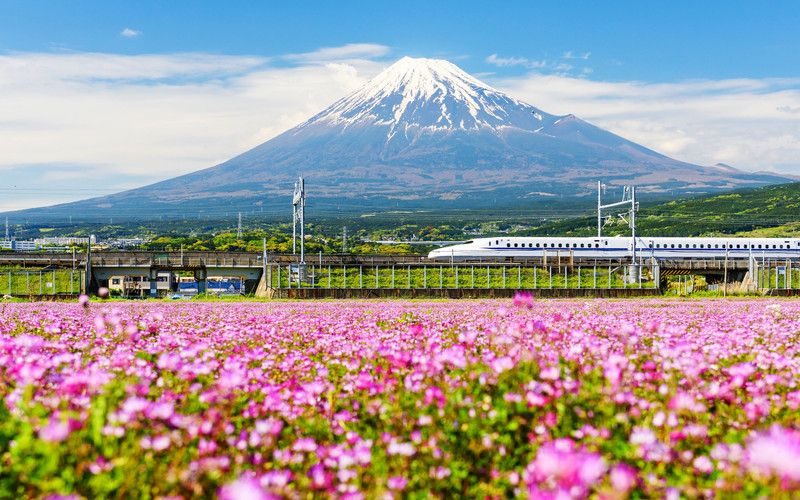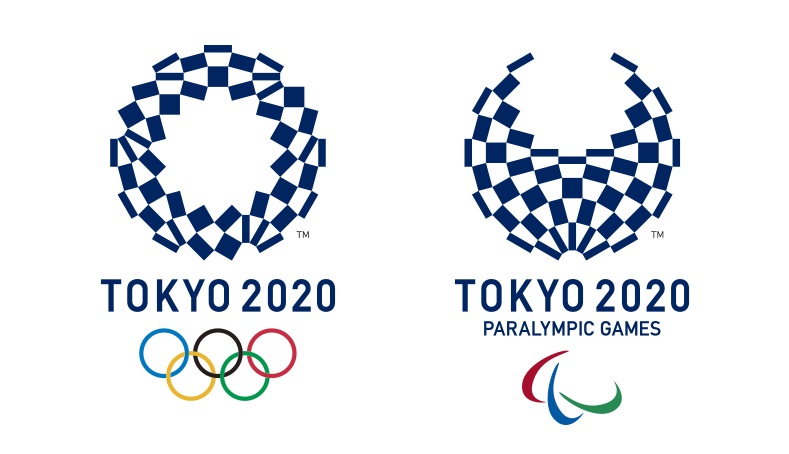On this page you can find a comprehensive guide to all aspects of the Tokyo Summer Olympics in 2021 and discover valuable advice regarding the schedule of the Games, accomodation options in Tokyo, information about necessary travel documents such as visas, and more.
Table of Contents
- 1 The postponement of the Tokyo Olympics to 2021
- 2 New dates for the 2020 Olympics
- 3 How to buy tickets for the Olympics
- 4 Where the Tokyo Olympics will take place
- 5 Traveling to Japan
- 6 Accommodation in Tokyo
- 7 Transportation in Japan
- 8 Look beyond Tokyo
- 9 Japan Rail Pass
- 10 Updated Information about Japan travel bans and restrictions
The postponement of the Tokyo Olympics to 2021
Due to safety concerns surrounding the spread of the novel coronavirus COVID-19, both Shinzo Abe, the then-Prime Minister of Japan, and the President of the International Olympic Committee (IOC), Thomas Bach, agreed to postpone the Tokyo Olympics until 2021.
The Tokyo 2020 Olympics and Paralympics will now take place in summer 2021, exactly one year after the original start date, in order to “safeguard the health of the athletes and everyone involved”.
New dates for the 2020 Olympics
As mentioned above, the entire Tokyo 2020 schedule has now been pushed back by exactly one year, in order to minimize the disruption the delay could cause to athletes and the international sports calendar.
The Olympics opening ceremony is now due to take place on July 23rd, 2021, and the Games themselves will run from July 24th to 8th August, with the closing ceremony held on the final day of the competitions.
Likewise, the calendar for the Paralympics has also been pushed back by a full year, and will now take place from August 25th to September 6th, 2021.
How to buy tickets for the Olympics
As a number of people requested refunds after the Tokyo Olympics were postponed to 2021, there is still some availability and it is still possible to buy tickets for the Games.
To do so, it is necessary to browse the list of Authorised Ticket Resellers (ATRs) appointed by the National Olympic Committee of your country to find the nearest ticket distributor to you.
Olympics ticket prices start from as little as 12,000 for a single adult or 2,000 yen for children, although they can vary depending on the popularity of the event. The most expensive tickets, for the opening and closing ceremonies, will cost around 300,000 yen per adult.
Where the Tokyo Olympics will take place
The main venues for the Tokyo Olympics will be spread over two main interlinked areas in Tokyo: the Heritage Zone, which refuses some of the stadiums from the 1964 Olympics in Japan, and a number of newly built venues in the Tokyo Bay Zone.

The main venue for many of the competitions will be the newly revamped Tokyo Stadium, where athletic events are due to tick off on July 30th and where many of the Paralympic events will also take place. The remodeled venue will be able to seat up to over 68,000 spectators.
In total, over 42 venues, some specially built for the occasion, will be used for the Olympics, and play host to over 339 events across 50 different sporting disciplines.
Traveling to Japan
If you are planning to travel to Japan in 2021 for the Olympics, it’s likely that you will arrive at one of the 2 major international airports in Tokyo, either Narita Airport or Haneda Airport.
- Haneda Airport, also known as Tokyo International Airport, is located just 15 kilometers south of central Tokyo, or a 15-minute train ride.
- While Narita Airport is a bit further away, approximately 60 kilometers from the city, it’s still easy to reach Tokyo by taking the Narita Express train and transferring at Shinjuku Station.
However, before booking tickets for flights to Tokyo for 2021, you should first check whether it is necessary for your nationality to obtain a visa for Japan to gain entry to the country.
Read more: Japan travel advisory
Although citizens from roughly 70 countries are visa-exempt for Japan for short stays for tourism, leisure, and business purposes, the majority of foreigners need an approved visa for Japan no matter the length or purpose of their trip.
At the moment, it is necessary for visa required travelers to obtain a visa from a Japanese embassy or consulate in their country of residence, but this is expected to change in early 2021 when Japan introduces an electronic application for a tourist visa.
Read more: Planning a travel to Japan
Accommodation in Tokyo
Tokyo is absolutely packed full of accomodation options for a stay during the Olympics, although due to the anticipated popularity of the event, it’s advisable to book a hotel or Airbnb well in advance of Summer 2021 to guarantee availability.
Nevertheless, there are also a number of alternative accommodation options in Tokyo you may want to consider, if you are willing to stay in less luxurious surroundings than you might ordinarily consider, or are prepared to travel to the Olympics events from the areas surrounding the city.
An increasingly popular trend among budget travelers to Tokyo is to stay in a pod hotel, also known as a capsule hotel. Although the thought of sleeping in a small cubicle may not initially sound as appealing as having your own normal-sized room, the majority of capsule hotels come equipped with state-of-the-art modern amenities, and are very comfortable.

Another option, especially if you wish to experience some traditional hospitality while in Japan, is to stay in a Ryokan (Japanese guest house).
Japanese inns often come equipped with luxury spa facilities such as hot springs, saunas, and massage rooms. While they are most often found clustered around small spa towns, many of the best Ryokan can actually be found in suburban Tokyo not too far from the city centre.
Transportation in Japan
The train network in Japan is often considered one of the most extensive and efficiently managed in the world, so you should have no problem getting around if planning to travel the country by rail.
The majority of the rail lines in the country are operated by different regional companies owned by the National Japan Railways Group. While each company has its own price list, it is possible to travel on a huge number of services using the discount Japan Rail Pass multi-use ticket.

It’s also incredibly easy to get around Tokyo itself using the city metro system, including on the main Japan Rail Network services such as the Yamanote Line, which runs along the main stops in the city such as Tokyo, Ueno, Ikebukuro, Shinjuku, and Shibuya Stations.
If you’re planning on spending a few days in the city and undertaking a 3 or 5-day Tokyo tourist itinerary, it may be worth getting a prepaid IC travel card such as Pasmo or Suica in addition to a JR Pass to allow you access to almost every bus or train service in the metropolitan area.
Look beyond Tokyo
Even if your main reason for visiting Japan is to see as much of the Olympics as you can, you may also want to consider planning a day trip from Tokyo and discovering some of the culturally diverse and appealing cities not too far away, including:
Another must-see attraction within a reasonable distance of Tokyo is the iconic peak of
Mount Fuji, the world-famous active volcano which offers a number of exciting hiking trails in the summer.

If you’re a fan of hiking and the great outdoors, you might also want to consider a visit to the lesser-known but equally beautiful Mount Takao, just a 45-60 minute train ride from central Tokyo.
Japan Rail Pass
As stated above, a Japan Rail Pass can be used on the majority of the train services offered by the JR network all over the country, and saves the holder a great deal of money over buying individual tickets at every station.
A multi-use ticket, the JR Pass can be used on all JR national services, including the high-speed Shinkansen bullet trains and the Narita Express which connects Tokyo with one of its main international airports.

Travelers are able to order a JR pass online to receive an exchange order which is easy to swap for the ticket at a number of locations all over Japan. The pass can be issued with a validity of either 4, 14, or 21 days, as either a Standard Pass or first-class Green Pass.
Updated Information about Japan travel bans and restrictions
Japan has begun relaxing its travel restrictions to contain the spread of COVID-19 for foreign citizens, and tourist travel is expected to be fully reopened before the start of the Olympics in 2021.
Nevertheless, certain travel restrictions for Japan due to coronavirus are expected to remain in place throughout the year and be frequently revised, so those planning a trip to the country in 2021 so periodically check for any updates that may affect their plans.
